Abstract
We analyze the optimal cigarette excise tax rate based on the optimal tax theory. We find that the optimal tax is different when there is an illegal production of cigarettes. We find that, without illegal production of cigarettes, the government can achieve the first best optimum condition by fully internalizing externality. The government can optimally choose the amount of tax on legal cigarettes that is equal to the marginal cost of health care. When there is an illegal production of cigarettes, we find that the rate of cigarette excise tax is not equal to the marginal cost of health care. Therefore, the government need more policy instruments to achieve the optimal tax rate in this case. We also find that an increase in the work hours of a legal cigarette production reduces illegal cigarette productions. Policymakers can use marginal income tax policy as an incentive to reduce illegal production of cigarettes.
